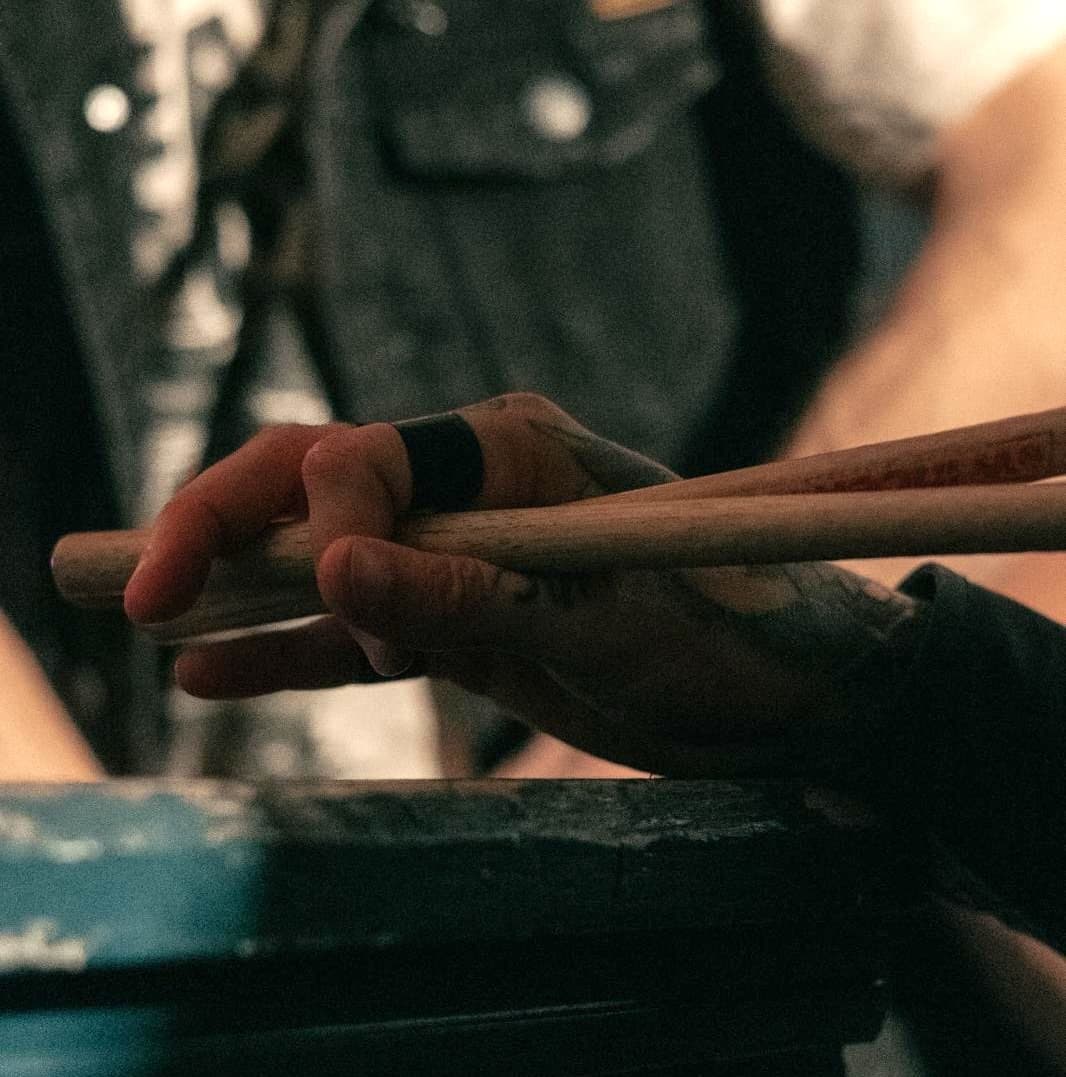I remember the moment clearly. I was teaching a drum lesson to Jamie, a talented 14-year-old who couldn’t understand why his doubles were sounding choppy despite hours of practice. As I watched him play, I noticed his knuckles turning white from gripping the sticks like they might escape. “Loosen your grip,” I suggested. When he did, not only did his playing immediately improve, but his entire demeanour changed – shoulders dropped, breathing deepened, face relaxed.
That’s when it hit me. The tension in his hands wasn’t just affecting his playing – it was both reflecting and reinforcing his anxiety.
After 15 years of drumming professionally and teaching hundreds of students at Top of the Rock Tuition, I’ve discovered something fascinating: your grip technique isn’t just a technical consideration. It’s a direct line of communication between your physical and mental state. When your grip tightens, it’s often your body’s first response to anxiety, frustration, or doubt – sometimes before you’re even consciously aware of those feelings.
The Physical-Mental Connection
Think about what happens when you’re stressed. Your muscles tense, your breathing becomes shallow, and you literally “tighten up.” On drums, this manifests instantly in your grip. Your body responds to mental tension by creating physical tension – it’s an ancient survival mechanism that once prepared us for fight-or-flight situations.
The problem? That tension is the enemy of good technique.
When you grip too tightly, you restrict the natural rebound of the stick. You fight against the drum rather than working with it. Your movements become rigid, your stamina decreases, and you’re more prone to injury. Essentially, you’re making everything harder for yourself.
But here’s the fascinating part – this relationship works both ways.
When You Change Your Grip, You Change Your Mind
I’ve seen it countless times in my studio. A student arrives frazzled after a stressful day at school or work. Their playing is tight, restricted, and forced. I guide them through grip adjustment exercises – loosening their hold, finding the balance point, allowing the stick to do more of the work.
Within minutes, something shifts. Their breathing deepens. Their shoulders drop. Often, they’ll even smile without realising it.
By adjusting their physical approach, they’ve inadvertently adjusted their mental state. It’s not magic – it’s the mind-body connection at work.
Different Grips, Different Mental States
What’s particularly interesting is how different grip styles can reflect and affect different mental approaches:
The death grip (squeezing the sticks with white knuckles) often coincides with performance anxiety or fear of making mistakes. It creates a controlled but tense sound and typically leads to mental and physical fatigue.
The loose, floppy grip usually appears when students lack confidence in their technique. The sound is inconsistent, mirroring uncertain thinking and hesitation.
The balanced, controlled grip – where sticks are held firmly but not strangled – tends to produce both better sound and a more focused, present mental state. There’s confidence without tension, control without force.

Practical Techniques for Mind-Body Harmony
So how do you use this knowledge to improve both your playing and your mental state? Here are some approaches I use with my students:
Start with awareness. Next time you play, pay attention to your grip. When do you tense up? What passages or situations trigger that response? Just noticing the pattern is the first step toward changing it.
Practice the “grip check.” Every few minutes while playing, consciously assess your grip tension. Ask: “Am I holding these sticks, or strangling them?” This simple check often reveals tension you didn’t know was building.
Try the pendulum exercise. Hold your sticks at the balance point and let them swing freely between your thumb and forefinger. Feel the natural motion without forcing it. This sensation of “controlled freedom” is your target.
I still catch myself death-gripping during complex passages or when I’m tired. Old habits die hard. But now I recognize what my hands are telling me about my mental state – they’re my early warning system for anxiety or frustration.
Beyond Technique
The beauty of understanding this connection goes beyond improving your drumming. Students often tell me they’ve become more aware of physical tension in other areas of life – noticing clenched jaws during exams or tight shoulders during challenging conversations.
This bodily awareness becomes a tool for emotional regulation. When you can recognize tension as it forms, you can address the physical symptoms and, by extension, the mental causes.
Music has always been about more than just playing notes. At Top of the Rock Tuition, we understand that the physical act of playing is inseparable from the mental experience. The therapeutic benefits of drumming come not just from the rhythm and sound, but from the physical-mental dialogue happening with every stroke.
So next time you pick up your sticks, remember – your hands aren’t just playing the drums. They’re telling you something important about what’s happening in your mind. All you need to do is listen.
If this sounds familiar, we’d love to show you how we support learners like yours every day. Book a visit to one of our studios and see how we create a calm, confidence-building space where every child can feel at ease.



